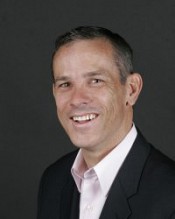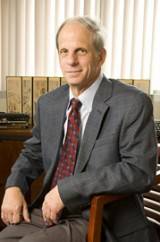University Course - Justice, Mercy and Mass Incarceration
 Justice, Mercy and Mass Incarceration (UNIV 5150) will explore mass incarceration through law and religion together, equipping students with a deeper understanding of the causes and consequences of our current system. It will also explore the legal structures and justifications that create mass incarceration and the moral and theological arguments that are provoked. This interdisciplinary study will enable students to become better advocates for change through policy, law, outreach and activism. Given this course's denotation as a multicultural university course, students will address incarceration's deeply embedded racial and ethic dynamics--considering its influence on concepts of procedural justice in the communities of color that it disproportionally affects.
Justice, Mercy and Mass Incarceration (UNIV 5150) will explore mass incarceration through law and religion together, equipping students with a deeper understanding of the causes and consequences of our current system. It will also explore the legal structures and justifications that create mass incarceration and the moral and theological arguments that are provoked. This interdisciplinary study will enable students to become better advocates for change through policy, law, outreach and activism. Given this course's denotation as a multicultural university course, students will address incarceration's deeply embedded racial and ethic dynamics--considering its influence on concepts of procedural justice in the communities of color that it disproportionally affects.
Instructors

Graham Reside, Assistant Professor and Executive Director for the Cal Turner Program in Moral Leadership for the Professions. Reside works in the area of sociology of religion, social ethics and the sociology of morality. He also serves as the director of global education at the Divinity School.
 Ed Rubin, University Professor of Law and Political Science. Rubin specializes in administrative law, constitutional law and legal theory. He is the author of numerous books, articles and book chapters. Professor Rubin joined Vanderbilt Law School as Dean and the first John Wade–Kent Syverud Professor of Law in July 2005, serving a four-year term that ended in June 2009.
Ed Rubin, University Professor of Law and Political Science. Rubin specializes in administrative law, constitutional law and legal theory. He is the author of numerous books, articles and book chapters. Professor Rubin joined Vanderbilt Law School as Dean and the first John Wade–Kent Syverud Professor of Law in July 2005, serving a four-year term that ended in June 2009.
Course Overview
Key features:
- This course will feature lectures and presentations from formerly incarcerated people as well as principle contributors to the national conversation about mass incarceration in the United States. Students will also have an opportunity to visit Riverbend prison and discuss the experience of life on the inside.
- The course takes students through the history and development of penal practices in the United States, and examines the persistent thread of race in the motive behind the expansion of the prison system.
- This course is specifically cross-professional, readying aspiring lawyers, religious leaders and social activists for collaborations across disciplines when considering those touched by the criminal justice system.
Degree requirements fulfilled:
- Divinity School: Will count towards the Foundational Requirement in Ethics for the Master of Divinity and Master of Theological Studies degrees.
- Graduate School: Will count towards the 30 credits required for the Master’s degree and the 72 credits required for the Ph.D.
- Law School: Elective credit toward the degree.
- Peabody Professional: Credit toward the degree.
- School of Nursing: Elective credit toward the degree.
